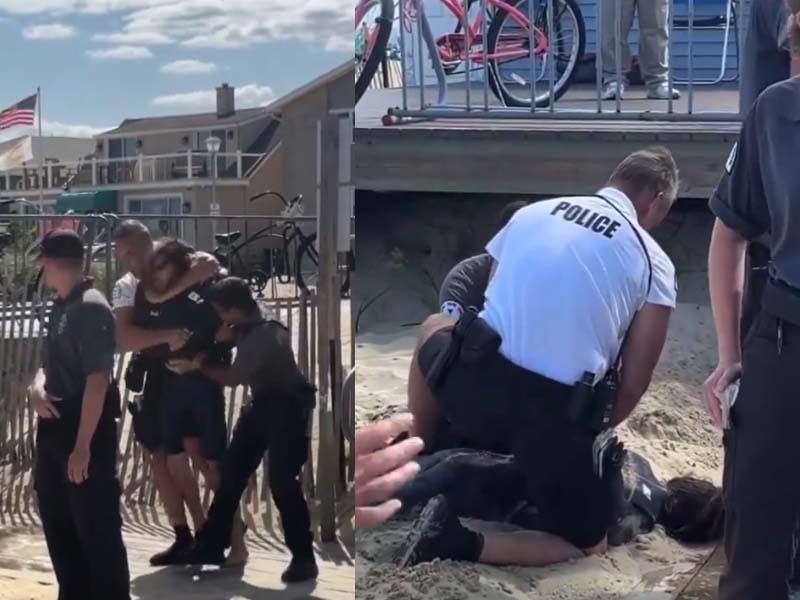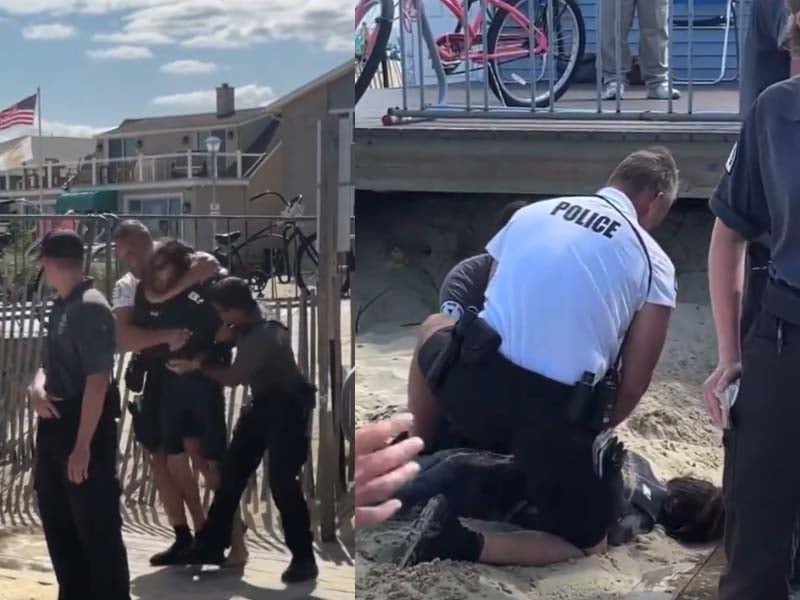
BELMAR, NJ (OP-ED) – New Jersey’s infamous beach badge policy is making headlines again after a surfer was arrested in Belmar for not displaying his badge. The incident involved Liam Mahoney, who was surfing near the high water mark when he was confronted by police. According to reports, Mahoney had his badge in his sister’s bag, but Officer Ryan Braswell didn’t believe him, leading to a heated exchange and Mahoney’s eventual arrest.
Police claim the arrest wasn’t for the beach badge, but the surfer’s resisting police checking his badge.
The arrest has reignited the debate over the fairness of charging for beach access in New Jersey, a state with a long history of requiring beachgoers to purchase and display badges. Critics argue that these fees, which fund beach maintenance, create unnecessary barriers, especially for lower-income families and visitors. Under the Public Trust Doctrine, New Jersey holds that the public has the right to access coastal areas, yet local enforcement of badge requirements can be strict, as in Belmar’s case.
The incident caught the attention of several public figures who shared their views on social media. Rep. Marjorie Taylor Greene expressed her outrage, tweeting, “This surfer was arrested in Belmar Beach, NJ for NOT HAVING A ‘BEACH BADGE,’ meanwhile American taxpayers are PAYING TO HOUSE, FEED, PROVIDE HEALTHCARE FOR ILLEGAL ALIENS!!” Her comment reflects the broader frustration about the priorities of law enforcement and public spending.
There is a bit of grey area in New Jersey’s law however.
“State Supreme Court decisions say the public is entitled to the beaches at the mean high water mark, which is the point where the wet sand meets the dry, as well as to some of the dry sand above the line,” according to an interpretation by Beachopedia.
The Jersey Shore received federal beach replenishment from the U.S. Army Corps of Engineers. Under that project, the ACOE’s Public Access Appendix K to the restoration project, reasonable public access must be provided in accordance with the recreational use objectives of the particular area.
That means the public can freely access the beach and the ocean from below the high water mark. From this video, it appears the interaction began below the highwater mark. Shorelines replenished by the ACOE should be accessible by the public.
Collin Rugg also chimed in, criticizing the police officers involved, saying, “These officers are certified clowns.” His tweet highlights the growing backlash against what many see as heavy-handed enforcement of minor regulations.
On the other hand, a parody account of Congressman Chris Smith defended the badge requirement, noting, “We have had beach badges at NJ shore for over 50 years. All the surfers know this. This moron wants to cop an attitude.” This perspective underscores the long-standing tradition of beach badges in New Jersey and the expectation that locals and visitors alike should comply with the rules.
The arrest has sparked a larger conversation about the role of beach badges and whether they align with the public’s right to access and enjoy New Jersey’s coastline.


 (@RepMTG)
(@RepMTG)